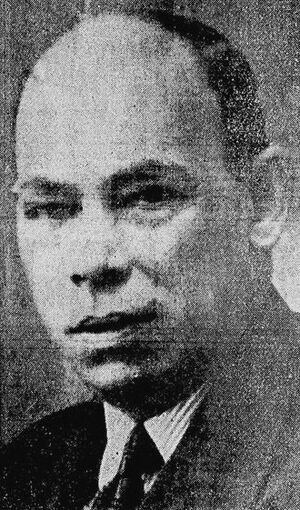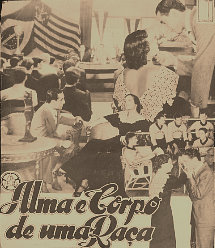Izidor Kürschner facts for kids
 |
|||
| Personal information | |||
|---|---|---|---|
| Date of birth | 29 June 1885 | ||
| Place of birth | Budapest, Austria-Hungary | ||
| Date of death | 8 December 1941 (aged 56) | ||
| Place of death | Rio de Janeiro, Brazil | ||
| Position(s) | Defender | ||
| Senior career* | |||
| Years | Team | Apps | (Gls) |
| 1904–1913 | MTK Budapest | ||
| International career | |||
| 1907–1911 | Hungary | 5 | (0) |
| Managerial career | |||
| 1920–1921 | 1. FC Nürnberg | ||
| 1921–1922 | Eintracht Frankfurt | ||
| 1922–1924 | FC Nordstern Basel | ||
| 1924 | Switzerland | ||
| Schwarz-Weiß Essen | |||
| 1925–1934 | Grasshoppers | ||
| 1934–1935 | Young Boys | ||
| 1937–1938 | CR Flamengo | ||
| Botafogo FR | |||
| *Club domestic league appearances and goals | |||
Izidor "Dori" Kürschner was a famous football player and coach from Hungary. In Brazil, people often called him Dori Kruschner. He was born on June 29, 1885, and passed away on December 8, 1941.
As a player, he was very good with the Budapest club MTK. He also played for the Hungarian national team. As a coach, he found success in Germany, winning a national championship with 1. FC Nürnberg.
His biggest wins came in Switzerland with the Grasshopper Club Zürich. There, he helped the team win seven important titles. When Kürschner came to Brazilian football, he brought new ideas. These ideas helped Brazil become one of the best football countries in the world. Kürschner was born in Hungary and was Jewish.
Contents
Playing Career
Kürschner played as a defender on the left side of the field. He could also play as a central defender. He was not known for being super strong or having fancy moves. Instead, he was smart about where he stood on the field. He was also very good at heading the ball. His playing style was simple and effective.
He played for MTK in his hometown of Budapest. He helped them win championships in 1904 and 1908. He also helped them win the Magyar Kupa three times in a row, from 1910 to 1912. Between 1907 and 1911, he played five times for the Hungary national football team.
In 1911, he opened a photo studio with another MTK player, Gyula Kertész. This helped him earn more money.
Coaching Career
Early Coaching Days
Kürschner started coaching in 1918 with MTK in Budapest. He took over from the coach Jimmy Hogan. He left MTK the next year and moved to Stuttgarter Kickers in Germany. He stayed there for two years. In 1921, he won the championship of Württemberg with them. This win allowed the club to play in the Southern German Championship.
Winning with Nürnberg
Stuttgart's team was soon out of the championship. This meant Kürschner could then lead 1. FC Nürnberg. Nürnberg was the defending champion. Kürschner guided them through the play-offs for the German national title. In the final, Nürnberg beat Vorwärts 90 from Berlin 5–0.
After this short time, FC Bayern Munich hired Kürschner for the next season. He took over from the famous English coach William Townley. Bayern finished second in their local championship. They did not qualify for the national tournament. This allowed Kürschner to help Nürnberg in their play-off games again.
He led Nürnberg to their third German Championship final in a row. They played against Hamburger SV. These two matches were very long, lasting over five hours in total. People in German football still call it the "eternal final." But no team won, and no title was given out that season.
In the next season, Kürschner became the first full-time coach of Eintracht Frankfurt. Frankfurt lost only one game and won their group. But in the overall championship games, another local team, Germania 94 Frankfurt, won.
Big Success in Switzerland
After his time in Germany, Kürschner worked for many years in Switzerland. In 1923–24, he joined FC Nordstern Basel. He was also their first full-time coach. He helped them get promoted to the first division. This started a very successful time in Nordstern's history.
Olympic Silver Medal
In 1924, Kürschner worked with Teddy Duckworth and Jimmy Hogan. They helped prepare the players of the Swiss national football team for the Olympic Games in Paris. Hogan was a very important English football pioneer. He is known for helping to develop football in Austria and Hungary.
In Paris, the Swiss team, led by Duckworth, reached the finals. Only the strong team from Uruguay could stop them. Uruguay beat Switzerland 3–0 in a very crowded stadium. Uruguay had also won the gold medal in the previous Olympics. This silver medal is still the biggest success in Swiss football history.
Later that year, Kürschner briefly became the first full-time coach of Schwarz-Weiss Essen in Germany. In a friendly game, they beat Kürschner's old team MTK 2–1.
Years of Wins with Grasshoppers
From 1925 to 1934, Kürschner worked for the Grasshopper Club Zürich. He won three national championships with them in 1927, 1928, and 1931. He also won the Swiss cup four times. This made him the second most successful coach in the club's history.
In 1931, football experts from all over Europe said that Grasshoppers was the "fourth strongest European side."
After Kürschner left Switzerland, the famous Austrian coach Karl Rappan took over. Rappan continued the club's success until 1948. Rappan also helped start the European cup competitions.
New Ideas in Rio de Janeiro
Kürschner arrived in Rio de Janeiro, Brazil, in March 1937. Within a month, he became the coach of CR Flamengo. This team had the legendary striker Leonidas da Silva, known as the Rubber Man.
Flamengo
At Flamengo, he took over from Flávio Costa. Costa had been a player-manager before. Costa then became Kürschner's assistant and later his successor. Flávio Costa became one of Brazil's greatest coaches in the 20th century. He won many titles with Flamengo and CR Vasco da Gama. He also led the Brazil national football team to win the Copa América and to second place in the 1950 World Cup.
Kürschner brought a new style of play to Brazil. He taught a more controlled, defensive way of playing. He also introduced new training methods, like training without the ball. Most importantly, he brought the WM system to Brazil. This system had been used in England since the 1920s. Before the 1938 World Cup in France, he shared these modern European football ideas with Brazil's coaching staff.
His time with Flamengo ended on September 4, 1938. This was the first game of the 1938 Campeonato Carioca season. It was also the opening day for the club's new stadium, Estádio da Gávea. Flamengo lost 0–2 to Vasco da Gama. This loss caused problems, and Kürschner was quickly fired.
Botafogo
Later in 1939, Kürschner was hired by Botafogo FR. This team was located near Flamengo. With Botafogo, he helped the team finish second in the Rio Championship for the third time in a row. However, he was still let go from Botafogo in August 1940.
In April 1941, he was considered for the coaching job at Canto do Rio FC. This club was getting ready to join the Rio Championship.
On the evening of December 8, 1941, Izidor Kürschner died from a heart attack in Rio de Janeiro. He was buried in the Cemetery São João de Batista in Botafogo.
Film Appearance
Kürschner can be seen in the Brazilian movie Alma e Corpo de uma Raça (which means "Body and Soul of a Race"). This movie was made in 1938 by director Milton Rodrigues. In a scene about real life in Brazil, Kürschner appears during a famous football match. It was the "Fla-Flu" Derby between Flamengo and Fluminense FC.
See also
- List of select Jewish football (association; soccer) players
 | Emma Amos |
 | Edward Mitchell Bannister |
 | Larry D. Alexander |
 | Ernie Barnes |


